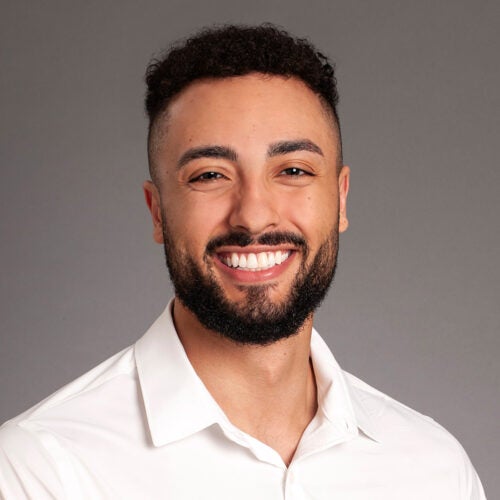College of Arts and Sciences recent graduate Sevio Stanton has been selected for prestigious research and education advancement by the National Science Foundation (NSF) Graduate Research Fellowship Program.
The program awards outstanding students in STEM-based graduate programs for their meritorious research and promising outlook. The five-year fellowship provides three years of financial support inclusive of an annual stipend of $37,000 to advance their graduate-level research.
In addition to Stanton, Boise State’s 2024 awardees include College of Engineering student Sarah Pooley and the following three alumni: Andrew Russell (’21, mechanical engineering) now at the University of Washington; Audrey Parker (’22, materials science and engineering) at Massachusetts Institute of Technology; and Kyle Fisch (’21, chemistry and biochemistry) at the University of Colorado at Boulder.
Meet Sevio Stanton

Excelling in one major is challenging enough, but Stanton did well in three – he graduated from Boise State in May 2024 with a triple major in physics, chemistry and biology.
“[I was] stirred by the wonder of what connections and insights might become apparent to me if I were able to view the world through the combined lenses,” he said.
When his focus shifted toward physics, he retained the other two majors to evaluate chemistry and biology from an insider’s perspective.
Stanton applied the lessons learned in the classroom to practical lab work in physics and chemistry. He took research assistantships at Boise State, working with professors Brian Jackson, Ken Cornell, Brian McClain and Daniel Fologea. He also took prestigious internships at the Massachusetts Institute of Technology and Fermilab, studying particle physics and artificial intelligence applications in astronomy.
“My professors have all been very helpful by providing letters of recommendation for the undergraduate research programs that I have applied to,” Stanton said. “Dr. Fologea was a tremendous collaborative help with the research proposal for the National Science Foundation fellowship program.”
Stanton is heading to the University of Colorado at Boulder in the fall of 2024 where he’ll pursue a doctorate in physics. He’s particularly interested in high-energy theory, cosmology and dark matter. The NSF and Department of Energy’s Computational Science Graduate Fellowship programs will support his studies.